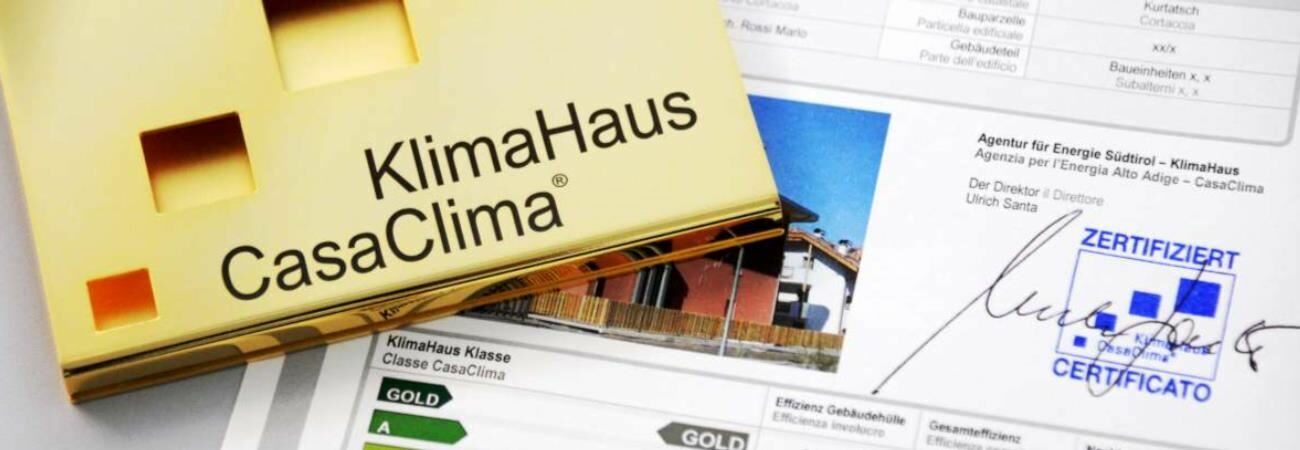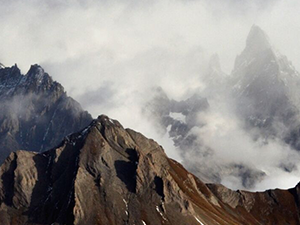Caretaker for Energy: “Cross-border exchange can be very beneficial”
The CasaClima Agency is a centre of excellence for energy-efficient and sustainable construction and renovation that is widely recognised throughout Italy and now increasingly at an international level. As a pioneering institution in this field, CasaClima has created a range of quality seals for building products and certifications that take a more holistic approach to sustainable construction. Examples include the Nature sustainability seal for residential buildings, Welcome and Hotel in the tourism sector, Wine for wineries, Work&Life for office buildings and School for schools and preschool learning spaces.
In 2014, CasaClima underwent a transformation process to become the Energy Agency South Tyrol – CasaClima, a public corporation of the Autonomous Province of Bolzano, South Tyrol. Since then, the fields of action and competences of the Agency have constantly expanded and new initiatives have been launched, such as the programmes KlimaGemeinde in the field of municipal climate protection or KlimaFactory for improving energy efficiency in companies. Today, the Agency is committed to lead efforts towards the decarbonisation of the economy in many different fields.
CasaClima has always been committed to awareness-raising and consultancy activities for building owners and citizens. A central pillar of this commitment is the education and training of planners and craftsmen on the topics of energy-efficient and sustainable construction. So far, more than 40,000 participants have made use of the Agency’s broad range of training courses. The Agency’s activities also include the publishing of trade magazines and guidebooks as well as the organisation of international conferences, trade fairs, seminars, and informative events. CasaClima accords importance to the constant exchange and institutional cooperation with public and private stakeholders, professional chambers, trade associations, consumer protection offices, and other interest groups. The Agency is also becoming increasingly engaged at the international level. For example, it coordinates the energy sector of the European Macroregional Strategy for the Alpine area (EUSALP) and is continuously involved in numerous international research projects.
The role as Caretaker of the Energy Community of the ACB is the latest development in CasaClima’s transnational cooperation efforts. Having already been an observer to the ACB in its role as EUSALP AG 9 Co-Leader, CasaClima believes that taking on a leading role in the Energy Community will enable to take advantage of synergies between the different activities and networks at Alpine level. In its role as Caretaker, CasaClima will be engaged in taking forward the four implementation pathways of the Energy Community:
– Network of regional energy coordinators (prioritised pathway)
– Support low-carbon Alpine lifestyle & business models (prioritised pathway)
– Enable energy democracy in the Alps
– Alpine administrations as forerunners
Two questions for Ulrich Santa, general manager of the Energy Agency South Tyrol – CasaClima and, together with Benjamin Auer, Caretaker of the Energy Community.
Q: What motivated you to apply to become a caretaker of the ACB?
When tackling the challenges brought upon us by the need to completely decarbonise our economies by 2050, I am convinced that we can only do so by working together transnationally. In particular, the regions of the Alpine area all face similar challenges on many aspects on which cross-border exchange can be very beneficial. If we think about renewable energy production and distribution, smart grids, energy communities, the gathering and processing of energy data – just to name a few – these are all aspects that need to be looked at regardless of regional or national borders. Since CasaClima is already involved in a number of transnational projects, and in particular as a Co-Leader of EUSALP Action Group 9, it made sense to accept the Caretaker role in an attempt to use as many synergies as possible between different networks and initiatives.
Q: What ideas do you have for implementing specific steps of the pathways?
The ideas will be developed jointly in the Community. But I can give some input at this stage. Let us look at the pathway “Network of regional energy coordinators” for example: there are so many areas in which each region currently works by themselves. For instance: each region collects and processes energy data in different ways; but in order to monitor the data and their related energy strategies, we would need a common approach in order to improve comparability. So we could think about the elaboration of guidelines to obtain a common set of fundamental (open) energy data, developed using the same methodology. In parallel, we should envisage capacity building for energy coordinators on topics of transnational interest. If we look at the pathway “Support low-carbon Alpine lifestyle & business models”, we could think about the extension of footprint calculators to the public (many examples already exist) and to enterprises; they would be able to carry out a self-assessment and see their potential for improvement. Related to this, we could imagine an instrument for compensation of CO2 emissions via local climate protection projects. Of course, some regions are more advanced than others, therefore the exchange of best practices will be vital.


